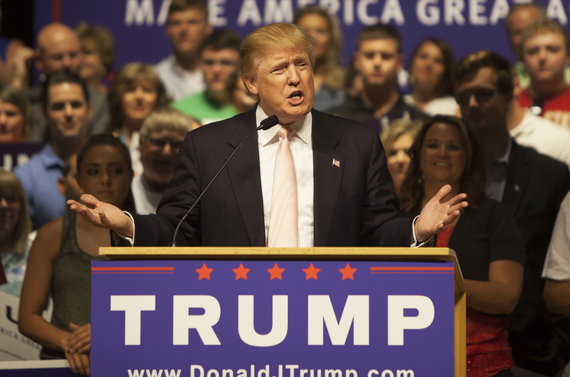With the fate of the Affordable Care Act still up in the air, it's not clear what health care will look like under President-elect Donald Trump. But as the opioid crisis rages on, Trump's administration can't afford to waste any time without a concrete plan to combat this epidemic. Last November, the Department of Health and Human Services (DHHS) released its first-ever Surgeon General's Report focused specifically on drug misuse and abuse in the United States. Here are the keys to an effective DHHS policy outlined in the Surgeon General's Report that the agency must embrace in order to win the fight against addiction.
Consider Practical Neurobiology. More than ever before, scientific evidence is demonstrating the clear relationship between the brain's neural reward pathways and addiction. Drugs like alcohol, cocaine and prescription opioids dump feel-good neurotransmitters into the brain, redirecting natural urges to eat or sleep into an all-consuming craving for the user's drug of choice. Integrating this practical neurobiology and moving away from addiction treatment models that use shame to discourage people from using drugs is essential to decreasing overdose-related deaths.
Implement Preventative Education as Public Policy. The best protection against addiction is prevention. The good news is that we already have a slew of evidence-based public policies outlined by the Surgeon General that we know will decrease addiction rates. An effective DHHS will thoughtfully use the power of addiction prevention public policies and programs to reduce the stigma surrounding addiction to replace it with knowledge, understanding and compassion, so that those who need treatment can and will seek it.
Promote Inclusive Medical Coverage. Once someone addicted to drugs or alcohol is ready to receive treatment and enter recovery, quickly connecting them to treatment is crucial. Addiction is a deadly disorder that deserves the same level of quality, intensive care a cancer patient can expect from our health care system. This means the next DHHS Secretary must push to protect the Mental Health Parity and Addiction Equity Act, legislation that prevents insurers from providing decreased benefits based on the nature of an illness, and other measures that would secure substance abuse treatment for millions of Americans.
Continue to Be Accountable. As Surgeon General Murthy noted, the report he released in November focused exclusively on drug addiction in the United States and was the first of its kind. If we expect to see continued improvements in the fight against addiction, especially the opioid abuse epidemic, continued communication with the American public on this issue is required. Our leaders owe it to us to show us just how hard they're working to save the lives of our friends and loved ones; preparing regular reports will keep our officials accountable to the public and the public health goals they prioritize.
Ending addiction in the United States will require certain common sense actions: emphasize science and prevention; ensure access to quality treatment; and set ambitious goals for the country that we hold our leaders accountable to realizing. President-elect Trump is perfectly positioned to continue this work toward ending the spiral of ever-increasing substance abuse-related deaths. With millions of Americans' lives at stake we must demand that our leaders see us through.

